RIYADH: Costa Rica supports a ceasefire in the Israel-Hamas conflict, for the free flow of humanitarian aid into Gaza and for a two-state solution to the Israeli-Palestinian dispute, its foreign affairs minister said.
Arnoldo Andre Tinoco made the comments in an interview with Arab News on Tuesday in Riyadh during his official visit to Saudi Arabia.
“We have clearly stated that we are in favor of an immediate ceasefire and allowing humanitarian aid to enter Gaza,” he said.
“We are vocal about the liberation of hostages and of course of the two-state solution — in peace, living together, as has been resolved many times by the UN.”

Costa Rican Minister of Foreign Affairs Arnoldo Tinoco. (AN photo by Huda Bashatah)
Israel launched its military campaign in Gaza in response to the Oct. 7 Hamas attack on southern Israel, which saw Palestinian militants kill some 1,200 people, mostly civilians, and take another 240 hostage, including many foreign nationals.
Since then, the Israeli military has waged a ferocious air and ground campaign against Hamas, which has controlled the Gaza Strip since 2007, killing more than 25,000 Palestinans, according to the Gaza health ministry.
Tinoco said Costa Rica’s rejection of militarism and support for diplomacy meant it was a strong believer in the authority of the UN and the importance of international law.
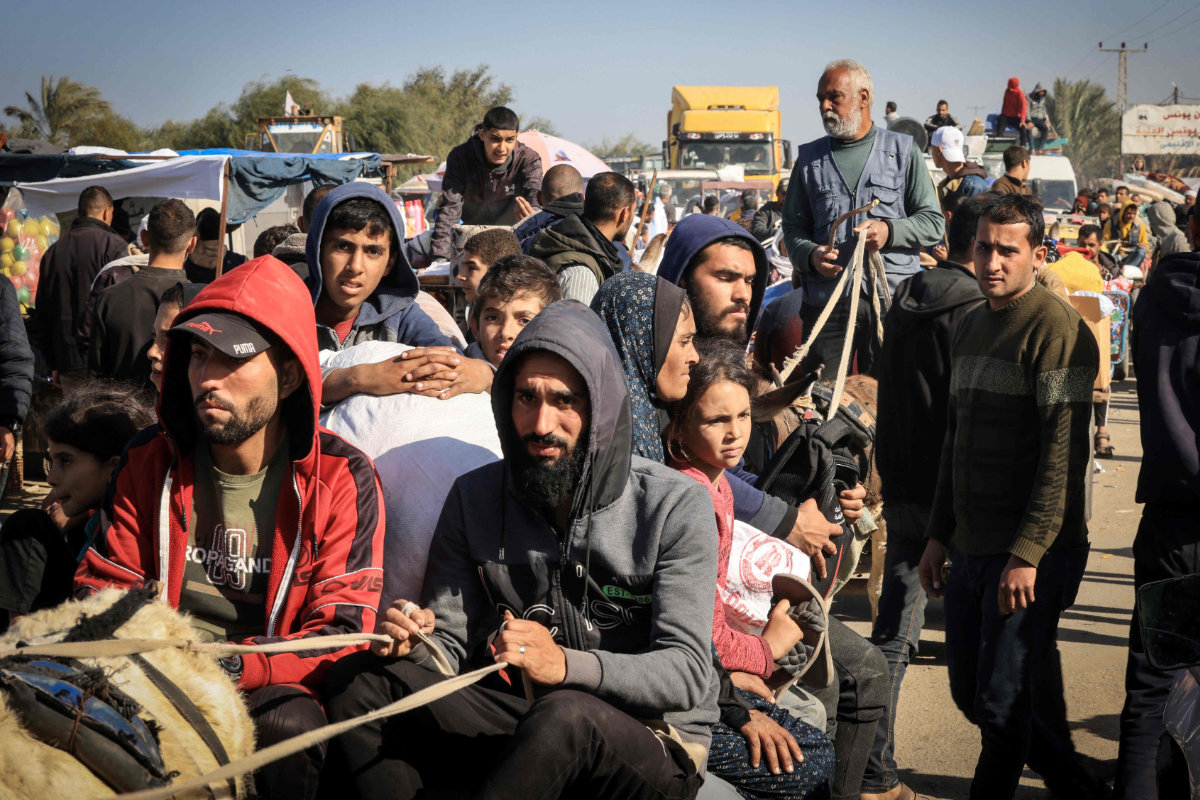
Palestinian families flee from Khan Yunis in the southern Gaza Strip on January 22, 2024 amid Israeli bombardment as as the Gaza War continues. (AFP)
“Costa Rica is a country without an army. We abolished, 75 years ago, the armed forces and therefore rely for our entire foreign policy and diplomatic efforts on the basis of international law,” he said.
“Therefore, the resolutions of the UN are a very good guideline on how the states should behave vis a vis this conflict.”
Tinoco was in Riyadh to meet Saudi officials, including Minister of State for Foreign Affairs Adel Al-Jubeir, at a time when Costa Rica is expanding its diplomatic and commercial relationship with the Middle East.

Costa Rican FM Arnoldo Andre Tinoco met with Saudi Minister of State for Foreign Affairs Adel Al-Jubeir in Riyadh on Wednesday. (Supplied)
For more than two decades, the Central American country had little exchange with the Arab world due to former President Luis Alberto Monge’s decision to move the nation’s embassy in Israel from Tel Aviv to Jerusalem in 1982.
In 2006, the embassy returned to Tel Aviv, helping the resumption of ties with Middle Eastern countries, including Saudi Arabia.
“During our administration — we took over in May 2022 — the relationship has increased and has been enhanced with constant visits of your ministers and constant visits of my person and soon other ministers to Riyadh in order to improve the relationship and to find concrete ways on how we can cooperate with each other in the different fields,” Tinoco said.
“I have had meetings, of course, with the Foreign Ministry. I have had meetings with the Ministry of Investment, with the Ministry of Agriculture, with the Ministries of Trade and Commerce and many other authorities, which gives us a broad scope about what’s happening here in Saudi Arabia.”
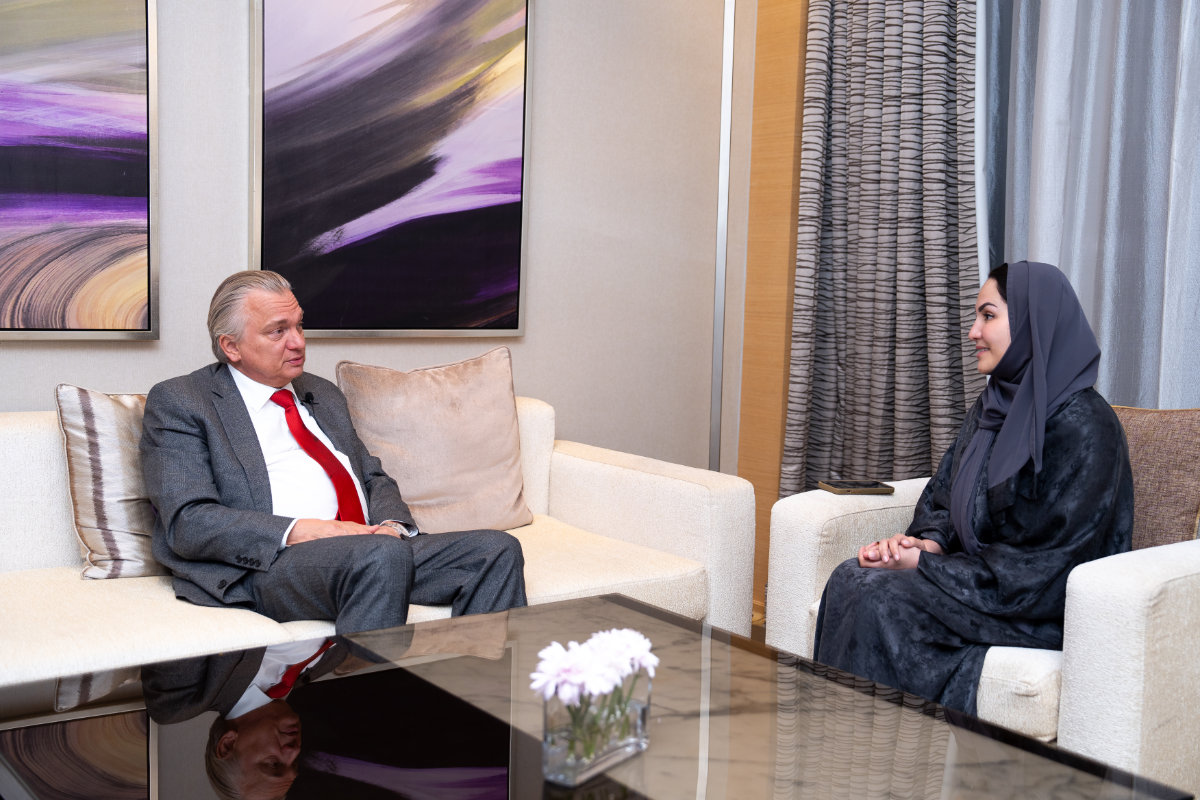
Costa Rican FM Arnoldo Andre Tinoco spoke to Arab News Deputy Editor-in-Chief Noor Nugali after meeting Saudi officials. (AN photo by Huda Bashatah)
Asked what he thought about the Kingdom’s Vision 2030 plan for social reform and economic diversification, launched in 2016 to wean Saudi Arabia off its reliance on oil and expand into new sectors, Tinoco said the pace of progress was commendable.
“It’s very impressive. What was explained to me one year ago and what we’re seeing now after a year, the effort, the strength, the investment, the passion with which the Saudi government and its people are looking for a change, impresses anyone,” he said.
“You see new things everywhere. You see new ideas everywhere. You see progress. You see the growth in the number of tourists visiting the country and you see the progress being made daily.
“I know it’s a very young country. I know more than 70 percent of the population is under 35 and this helps, of course, a society to change and to progress much quicker than others.”
Costa Rica mainly exports agricultural products such as bananas and coffee to Saudi Arabia, as well as medical equipment. By expanding relations with the Gulf economies, Tinoco hopes that two-way trade can grow and diversify.
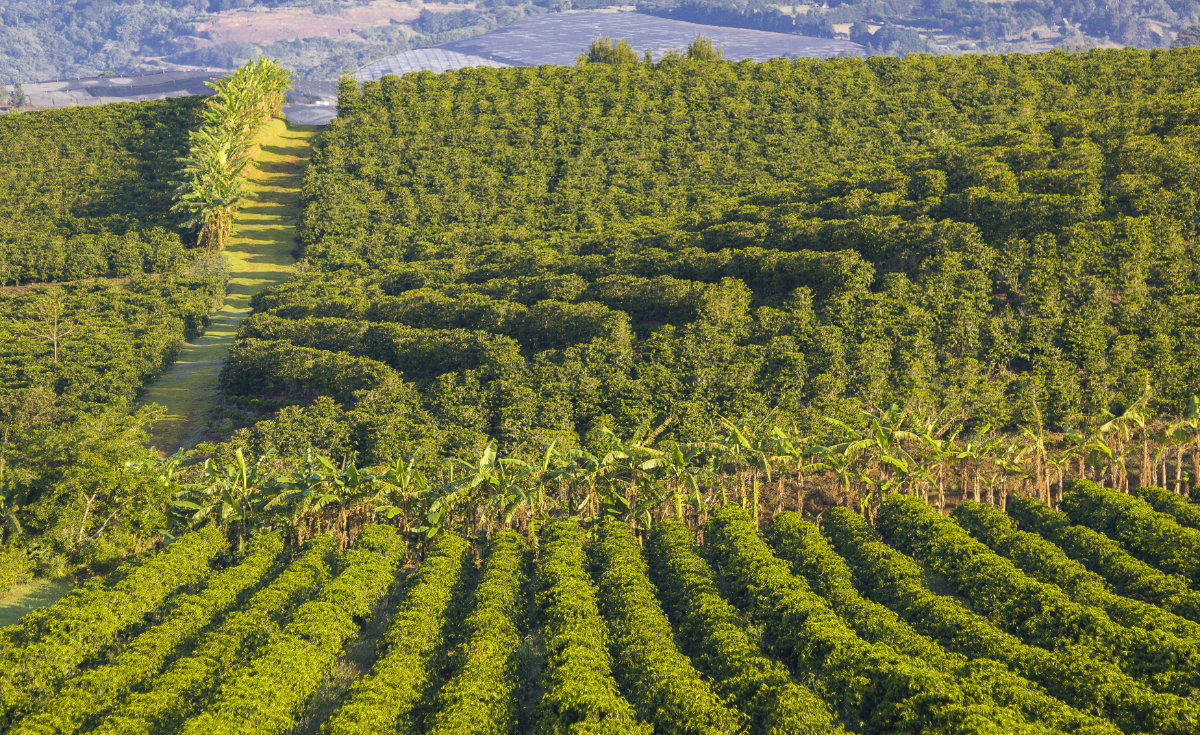
Coffee plantation lined with bananas on the fertile slopes of Poas Volcano in Costa Rica's central highlands. High-yield Arabica hybrid coffee bushes produce gourmet coffee for export. (Shutterstock)
“We opened our relationships in the mid-2010s to 2015 — and started exploring new avenues to the Middle East. Now we have official embassies present and concurrent in several countries, among others the UAE, together with Saudi Arabia and Qatar — those being the first countries where we are establishing ourselves here in the region,” he said.
“We are so different, but are complementary. As you know, we are a tropical country with water coming down in the form of rain and rivers and you are much drier, so our products are being asked for here in the markets. And we can, of course, purchase from Saudi Arabia your products.”
Costa Rica is especially keen to attract Saudi investment in its major infrastructure projects. During his visit, Tinoco met representatives of the Kingdom’s investment funds to discuss several such opportunities.
“We are still a middle-income country, still in need of infrastructure and therefore there are opportunities for financial institutions from Saudi Arabia to place its resources in sound, good infrastructure projects,” he said.
“Among others, we have roads, we have ports, we have airports to build. We have many opportunities which Saudi funds could be interested in eventually.”
One area of cooperation both countries appear keen to explore is the green transition, drawing on Costa Rica’s expertise in clean energy. About 99 percent of the country’s energy comes from renewables including hydro and geothermal power.
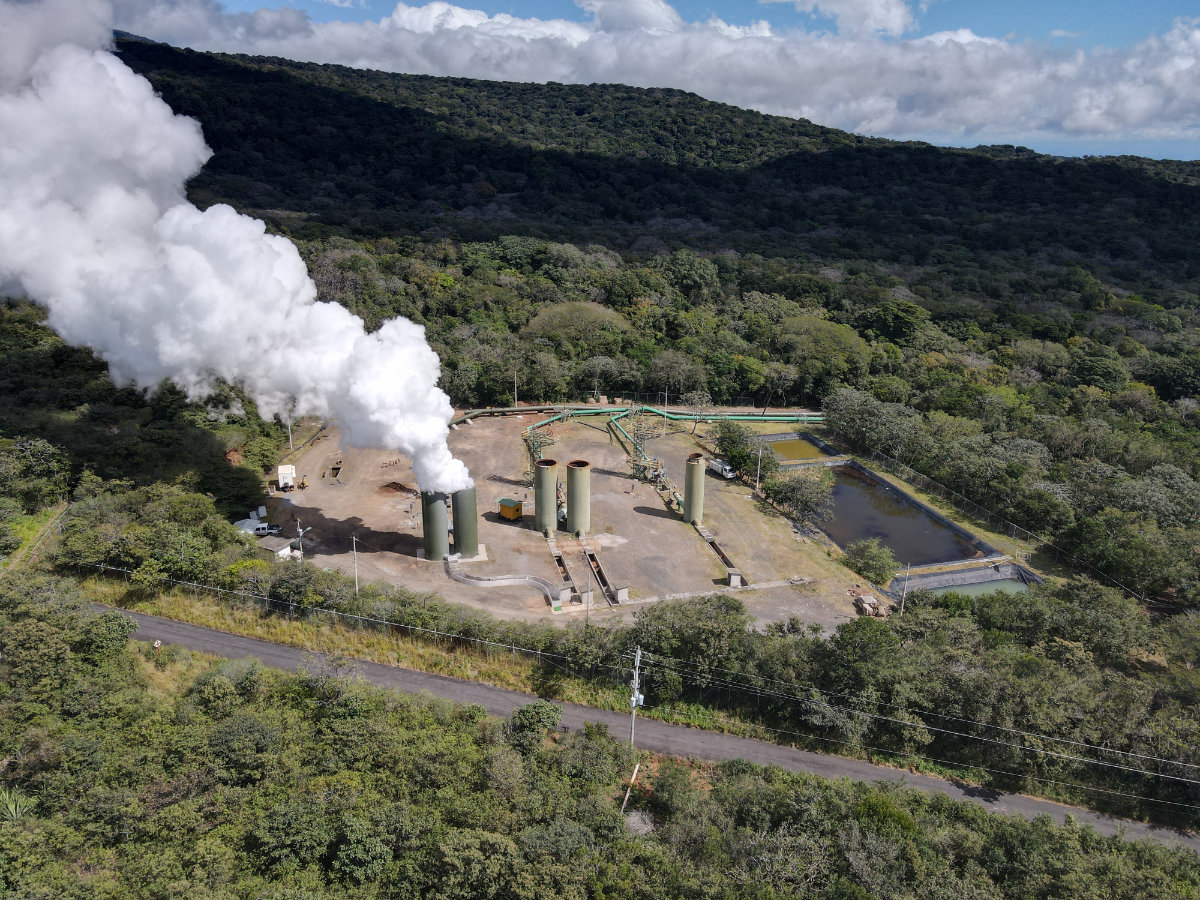
A view of the Las Pailas Geothermal Power Plant in Guanacaste, Costa Rica. (Shutterstock)
“We have offered the exchange of good practices, which is a good way to cooperate between states,” Tinoco said.
“We were blessed by God having these rivers in the mountains so that we could develop hydroelectric plants to generate electricity in a renewable way, and also the geothermal plants that take advantage of the heat generated by the volcanoes to generate electricity out of the heated water that this generates.
“And we have offered, of course, to share this technology and the Saudi Arabians have an interest in it.”
Costa Rica is also well known for its environmental protection work and ecotourism industry. Its reforestation campaign, in particular, has been a huge success, enhancing the region’s rich biodiversity and helping to remove carbon from the atmosphere.

Beautiful aerial view of Bananito River in the rainforest of Talamanca region, Costa Rica. (Shutterstock)
“Regarding sustainability, we have reverted the deforestation rate of the country which, in the 1970s and ’80s, had a coverage of about 30 percent of the surface and now it’s 60 percent. So we have achieved double the coverage of forest within the last 40 years, which is remarkable,” Tinoco said.
“And that was done by virtue of giving a value to the trees, giving a value to the forest, recognizing also the value of forests in private hands. And it was a very successful policy that we can, of course, share with Saudi Arabia.”
The Saudi Green Initiative and the Middle East Green Initiative, launched by Crown Prince Mohammed bin Salman in 2021, have set a target of planting about 10 billion trees in the Kingdom and 50 billion across the wider Middle East.
Greening this predominantly desert region will be a major undertaking, leveraging new water management technologies and the latest environmental expertise, but Tinoco is confident the initiatives will succeed.
“Yes, it requires high technology because of the lack of water,” he said. “Any growing plant needs a lot of water and fertilization. So if the technology reaches that maturity of course it would be a revolution to see these sandy areas turned into very green areas. We look forward very much to seeing that happen.”

As a part of the Saudi Green Initiative, the Kingdom aims to plant 10 billion trees. (Supplied)
Responding to the climate crisis is a key concern for Costa Rica, which is flanked by the Caribbean to the east and the Pacific to the west. The Intergovernmental Panel on Climate Change has forecast that sea levels may rise by more than three feet in Costa Rica by 2100.
However, Tinoco believes smaller nations, particularly low-lying and climate-vulnerable states in the Americas, are not receiving the financial assistance from the industrialized world they need to adapt.
“The dilemma with climate change is not so much about containing climate change anymore but on adaptation measures, because climate change is there and it’s affecting many countries, mainly small islands in the Pacific that will disappear with the rise of the sea level, and our areas and Central America will also be affected,” he said.
“Nevertheless, international funding does not always address the countries that need that to implement, on time, adaptation measures.
“Of course, we’re concerned that the main polluters of the world, which is the industrialized world, it’s the US, it’s China, it’s India and some other developed countries, they are not that speedy in implementing the measures to contain that, so that whatever we small countries do has very little effect.”
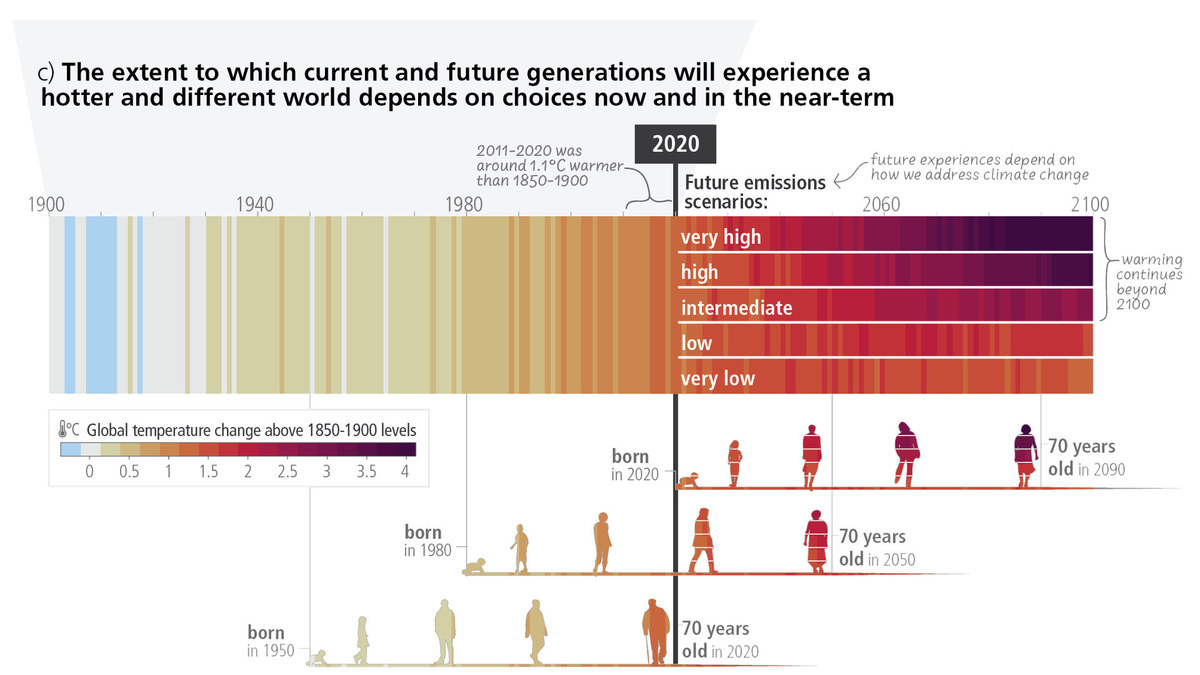
(Infographic: UN IPCC)
Latin America has not been spared the economic turbulence of recent years, nor the global rise of populist leaders on the left and right. In several of these countries, drug trafficking and institutional weakness have also led to an explosion in organized crime.
Viewed from the perspective of Costa Rica, a comparatively prosperous and stable country, Tinoco said his government would continue to engage with those nations irrespective of their political leanings, as long as they continued to respect international norms.
“We respect, of course, every state and we respect the form in which the people of every state decide to organize themselves in government and society,” he said.
Political trends in the region could soon change, however, with a flurry of general elections scheduled across the Americas this year — in the US, Mexico, El Salvador, the Dominican Republic, Panama and Uruguay.
Returning to the theme of adherence to international law, Tinoco said Costa Rica would be watching developments in the region closely to ensure human rights and democratic principles were respected.
“What we say in our region is that we respect others but, of course, watch the fulfillment of the protection of the civilians, protection of the human rights of everyone,” he said.
“The majority should rule, but the minorities ought to be also protected.”





























